Minister Shaheem Frames Quranic Leadership Drive as Defining Chapter in Maldives’ 900-Year Islamic Legacy
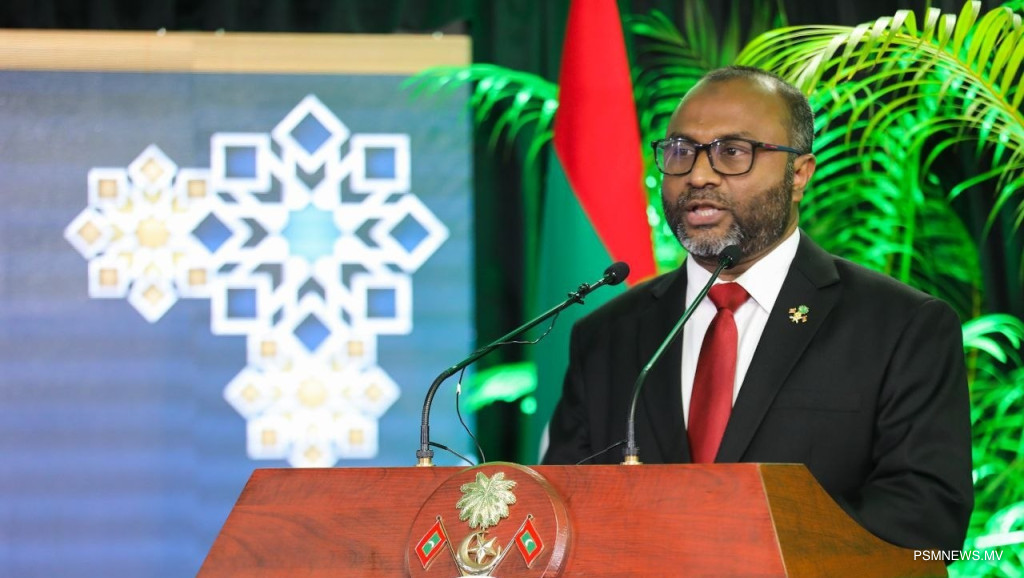
As the Maldives approaches nine centuries since its embrace of Islam, Minister of Islamic Affairs Dr Mohamed Shaheem Ali Saeed stated that the government is undertaking a far-reaching initiative to elevate the role of the Holy Quran and foster a new generation of Islamic leaders. He said the programme, spearheaded by the Islamic Affairs Ministry, sets out long-term objectives that extend into the next century and signals a renewed national commitment to religious identity and Quranic scholarship.
The announcement was made during the awards ceremony of the 37th National Quran Recitation Competition, where Minister Shaheem described the initiative as a foundational effort to reinforce the country’s Islamic creed. He noted that under President Dr Mohamed Muizzu’s administration, the Quran has been accorded a level of national priority not seen in modern times.
Central to the initiative is a set of quantitative targets for religious education. The government intends to train 500 Huffaz, individuals who have memorised the entire Quran, by the end of its current term. This marks a significant increase from the 24 certified last year, with a near-term goal of 50. In addition, the ministry aims to prepare 1,000 young Khutaba, or Islamic preachers, to ensure the continuity of religious leadership and to carry the Maldivian creed into the next century.
The programme is positioned not only as a response to contemporary needs but also as a legacy project that will define the next phase of Islamic unity in the country. Minister Shaheem framed these efforts as a pivotal moment in the nation’s 900-year religious history, with the development of a resilient leadership structure at its core.
In support of these goals, the government has significantly elevated the status of the National Quran Recitation Competition. While previous administrations made incremental improvements, the current leadership has introduced substantial enhancements, including high-value awards and institutional recognition. These changes, Minister Shaheem said, were implemented through direct presidential decision and signal a broader commitment to excellence in Quranic studies.
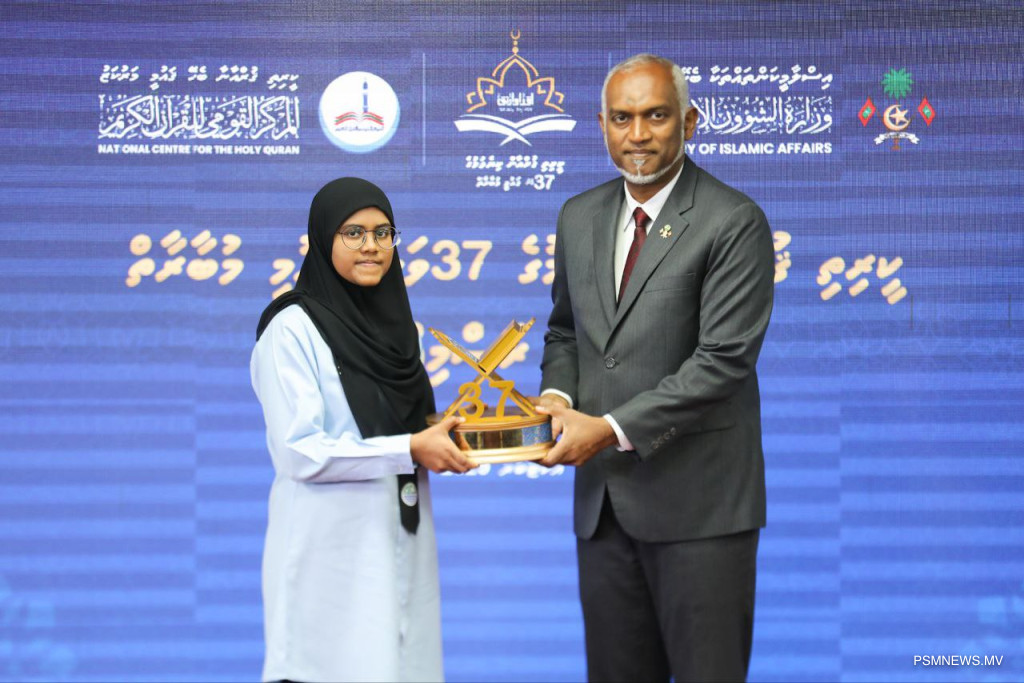
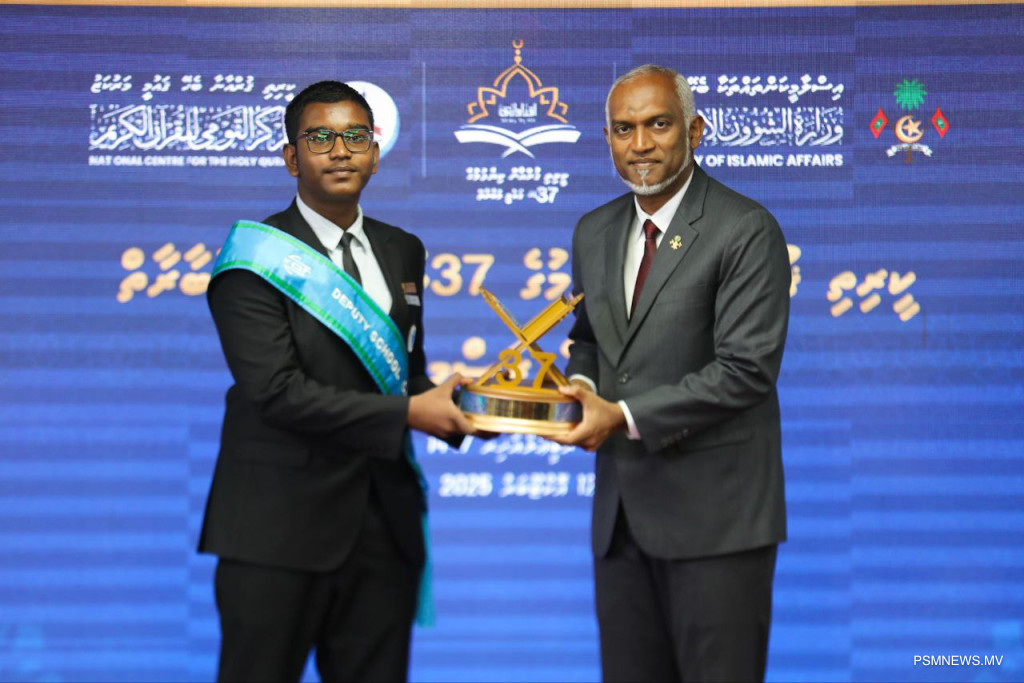
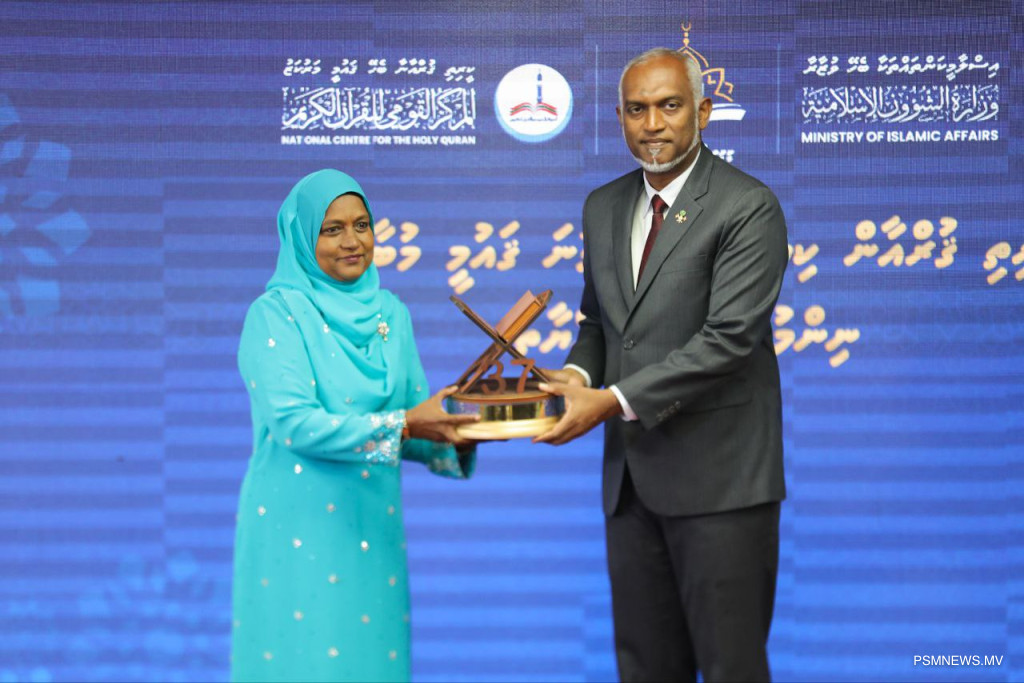
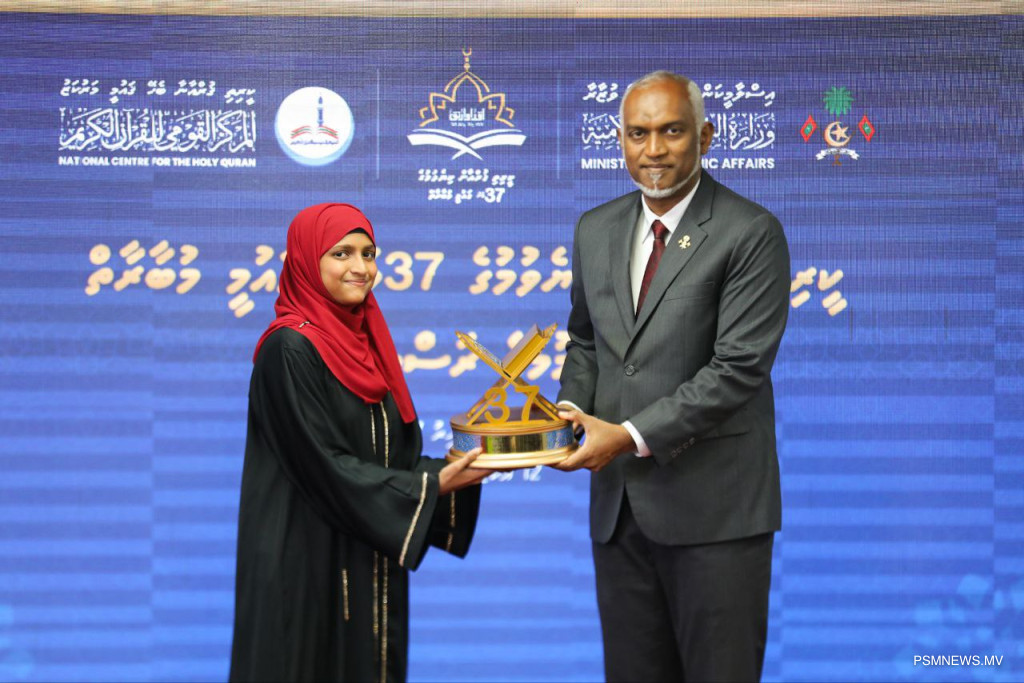
This year’s competition featured the most valuable prizes ever awarded to top-ranking participants. Among the honours were the president’s shield, substantial monetary awards funded by both the president and the Islamic Affairs Ministry, and a presidential scholarship for doctoral studies in any field and country. Additional support came from the National Centre for the Holy Quran, Maldives Zakat House, and the Islamic Development Fund. Winners also received memorial certificates, trophies, and an Umrah pilgrimage trip sponsored by the Maldives Hajj Corporation Limited.
The ministry confirmed that the event was financed through the state budget and that considerable effort had been made to raise its standard. Monetary prizes and commemorative awards were also distributed to second and third-place winners across various age categories. Participation itself was described as a mark of honour, with encouragement extended to all contestants.
Awards were presented by President Muizzu, First Lady Sajidha Mohamed, and cabinet ministers. Among the top recipients were individuals recognised for excellence in Quran memorisation, recitation from memory, and reading from the Quranic text. The leading institution in the competition was Al Madhrasathul Arabiyyathul Islamiyya, which received top honours for overall performance.
To ensure the sustainability of these efforts, the ministry has established a dedicated Waqf Fund for the Holy Quran. Minister Shaheem elaborated that this fund will cover tuition fees for Quranic classes that previously required payment, expanding access and embedding long-term support for Quranic education within the national framework.
